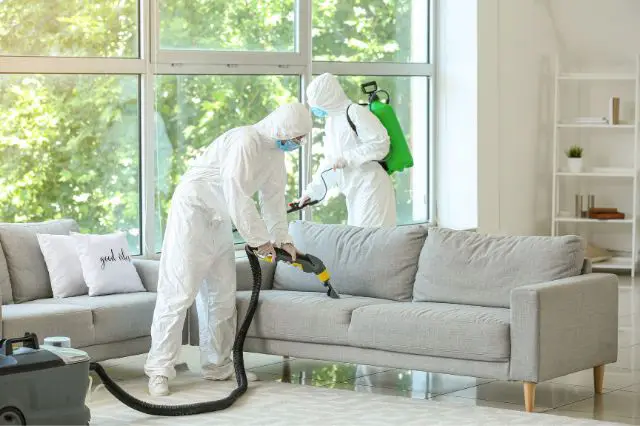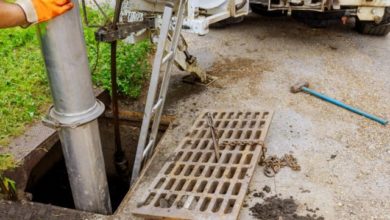From Crime Scenes to Contaminated Spaces: The Vital Role of Biohazard Cleanup

Biohazard cleanup, also known as crime and trauma scene cleanup, is a crucial and often overlooked profession that plays a vital role in maintaining public health and safety. From crime scenes to contaminated spaces, biohazard cleaners are responsible for disinfecting and removing potentially infectious materials, blood, bodily fluids, and other biohazards.
This specialized cleaning service requires trained and certified professionals who are equipped with the necessary knowledge, skills, and protective gear to handle hazardous materials and ensure proper disposal.
Despite the importance of their work, biohazard cleaners such as MedTech Cleaners often work in the shadows, unseen and underappreciated. However, their services are critical in preventing the spread of infectious diseases and protecting individuals and communities from potential harm. In this article, we will delve deeper into the world of biohazard cleanup and shed light on its vital role in our society.
Thorough Decontamination Prevents Health Risks
The proper decontamination of a space is crucial in preventing potential health risks. Whether it’s a crime scene, a laboratory, or a medical facility, any area that has been exposed to biohazards must be thoroughly cleaned and decontaminated to eliminate the risk of spreading infectious diseases.
Biohazard cleanup professionals are trained to handle hazardous materials and have the necessary knowledge and equipment to ensure that all traces of contamination are removed. By using specialized techniques and following strict protocols, they are able to effectively decontaminate the area and create a safe environment for those who may come into contact with it. Neglecting thorough decontamination not only poses a threat to the health of individuals, but it can also lead to the spread of diseases and jeopardize the overall safety of a community.
Specialized Equipment for Effective Cleanup
Biohazard cleanup professionals rely on specialized equipment to effectively clean up contaminated spaces. This equipment is specifically designed to handle biohazardous materials and ensures that all traces of contamination are thoroughly removed. One such piece of equipment is the high-efficiency particulate air (HEPA) vacuum, which is capable of filtering out even the smallest particles of biohazardous materials. This ensures that all surfaces are thoroughly cleaned and free of any potential health risks.
In addition to HEPA vacuums, biohazard cleanup professionals also utilize specialized disinfectants and cleaning agents. These products are specifically formulated to target and eliminate biohazards, ensuring a thorough and effective cleanup. Furthermore, personal protective equipment (PPE) is crucial for biohazard cleanup professionals to safely handle and dispose of contaminated materials. This includes items such as gloves, masks, and full-body suits, which provide a barrier against potential exposure to harmful substances.
Professional Expertise Tackles Hazardous Environments
The specialized field of biohazard cleanup requires a unique set of skills and knowledge to effectively handle hazardous environments. With their professional expertise, biohazard cleanup professionals are trained to handle a wide range of hazardous situations, from crime scenes to contaminated spaces. They are equipped with the necessary tools and techniques to safely and efficiently remove biohazardous materials, ensuring the safety of both themselves and those around them.
Prompt Response Crucial for Containment
Speed and efficiency are crucial when it comes to containing and cleaning up biohazardous materials. As discussed earlier, biohazard cleanup professionals possess the necessary expertise and training to handle hazardous environments, whether it be a crime scene or a contaminated space. However, the key to preventing further contamination and health risks lies in their prompt response.
In situations where biohazardous materials are present, time is of the essence. The longer these materials are left unattended, the greater the risk of spreading harmful pathogens and substances. This is why biohazard cleanup professionals act swiftly to assess the situation and create a detailed plan for containment and removal.
By responding promptly, they are able to minimize the potential impact on individuals and the environment, while also ensuring the safety and well-being of those involved. Prompt response is truly crucial for effective containment and cleanup of biohazards.
Conclusion
Biohazard cleanup plays a crucial role in maintaining the safety and well-being of individuals and communities. From crime scenes to contaminated spaces, these professionals use their expertise and specialized equipment to properly and effectively clean and disinfect hazardous materials.
As we continue to face new and emerging threats, the need for biohazard cleanup services will only increase. Let us acknowledge and appreciate the important work of these professionals in keeping our environments safe and healthy.



